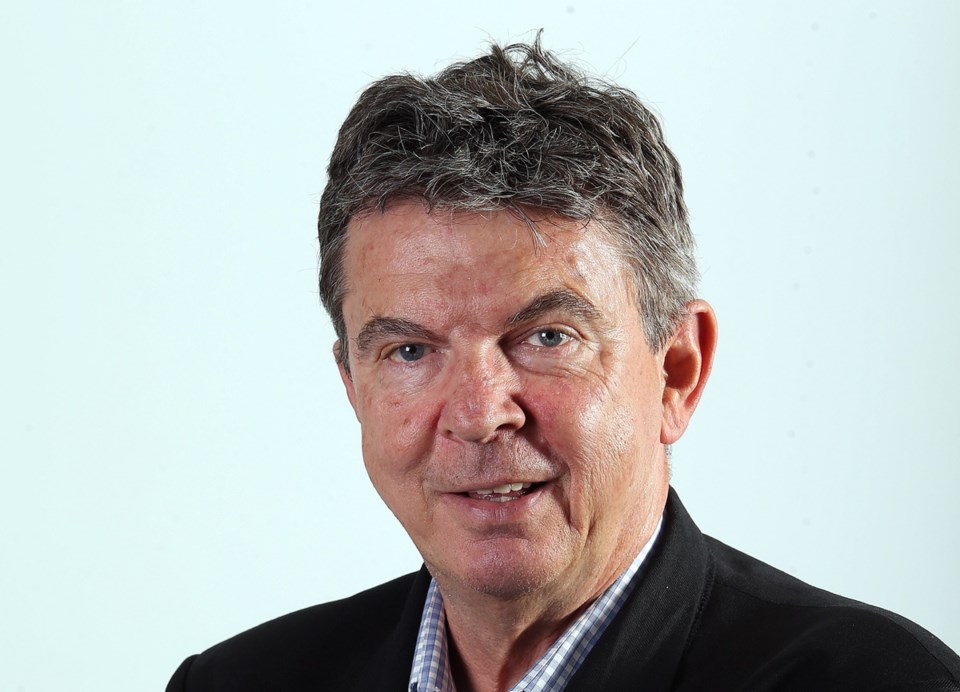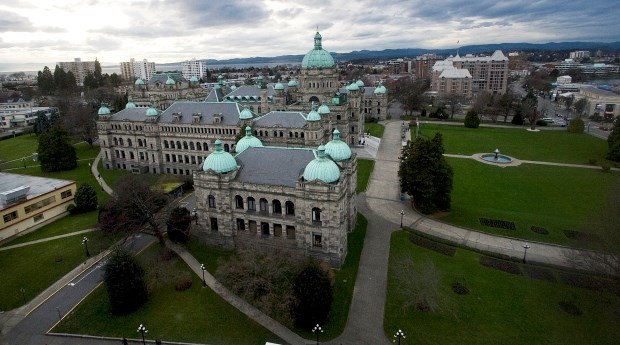 VANCOUVER
VANCOUVER
It’s case closed as far as Premier Christy Clark is concerned when it comes to the controversy over party fundraising and salary top-ups.
She showed no inclination Thursday to continue any public discussion of whether B.C.’s relatively wide-open fundraising laws need a rethink. Before opening the Western Premiers’ Conference, she told reporters little more than “the system works.”
She was reacting to conflict of interest commissioner Paul Fraser’s swift ruling that she breached no laws in appearing at private meetings where donors pay thousands to meet her, or in taking an extra salary of up to $50,000 from the B.C. Liberal Party.
There’s no question Fraser cleared her of all counts alleged by the NDP. But whether he cleared the air as far as the public is concerned is another matter.
Clark accepted the ruling at face value.
“I was always thinking the conflict commissioner would rule against the NDP,” she said. “I never thought they had much of a case. Politics has gotten down to the level of: If you say enough bad things, you don’t have to prove them to be true. If you say them enough, enough people will believe them. I think better of British Columbians than that.
“I’m not hopeful that the NDP will offer an apology for all this.”
If anyone is going to pursue changes to fundraising laws, which haven’t been reviewed in years, it’s not going to be Fraser.
In his ruling on Clark’s case, he said fundraising changes are “worthy of public ferment and debate.” He noted a general concern expressed that “it is inappropriate for politicians to ‘sell access’ to themselves in this manner.”
But he said it isn’t appropriate for his office to set parameters for the scope and scale of fundraising events. It’s up to the legislature to set campaign finance laws.
“The [Members’ Conflict of Interest] Act is not a moral code and I am not the arbiter of what may be political morality in the campaign finance context.”
Clark said all the money is disclosed and the system is transparent, as people know where it comes from.
She defined a conflict as “when there’s an obvious connection between a decision the government has made and money that has been received.
“I don’t think anybody has made any allegations of that under my watch.”
The agenda for the premiers’ conference she is chairing was scrambled by the devastating northern Alberta fires, and the new priority item is emergency management.
Federal funding has slipped over the years, and Clark wants western leaders to argue for a big new commitment, because “it’s not going to get easier.”
She said: “Climate change has created some of the driest climate we’ve ever seen, provinces burning out of control, not once in a while, but more and more regularly. The problem is getting worse. The floods on one end and fires on the other — we can look to climate change being a major culprit.”
The disaster forced the softwood lumber deal further down the agenda, but Clark said B.C. still wants a united western view on getting managed lumber trade with the U.S. with no quotas.
“There are a lot of Americans who depend on direct trade with Canada,” she said.
Referring to Donald Trump, she said: “There are people talking about building walls. Great American presidents never made their country or the world great because they were talking about building walls. They talked about taking down walls. That’s what trade is all about.”
The growing disparity between the western provinces’ economic situations is getting to the point where it’s likely an uncomfortable topic among the premiers.
Clark said B.C. is doing better than anywhere else in the country. “Other provinces have very serious economic conditions: Alberta, Saskatchewan is in the unusual position of facing tough times as well. And Manitoba has had tough times for a while.”
In general terms, creating jobs and growth and “saying yes to development and economic activity” will be on the agenda today, she said.



